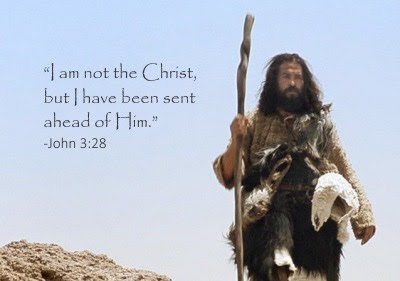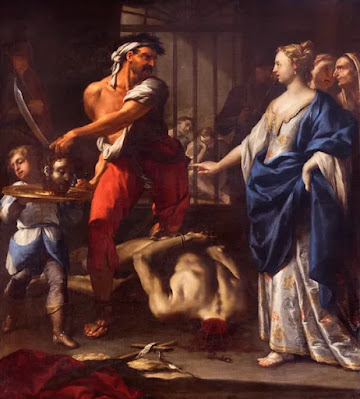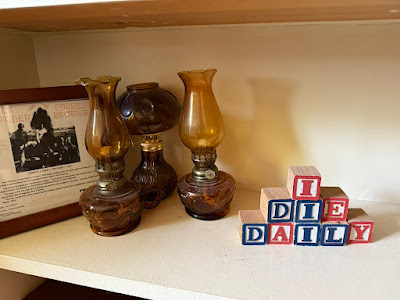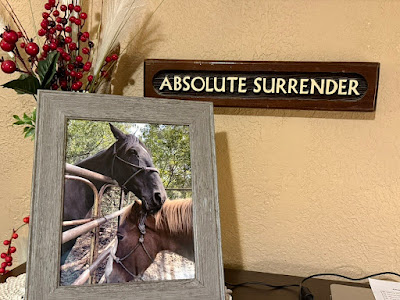A Piece of the Puzzle

There was a man sent from God, whose name was John.
He came as a witness, to bear witness about the light, that all might believe through Him. He was not the light, but came to bear witnessabout the light.
John 1:6-8 (underline emphasis mine)

In two verses, the same word is used to describe John the Baptist three times:
witness
In each dictionary I checked, the word is, first, a noun…not a verb; so that tells me, “I am” before “I do;” John, then, followed up with living it out.
Witness was John’s identity before it was John’s work.
Truthfully, we would be hard-pressed to separate the two, but the sequence is important: first, be; then, do.
God sent (indicating intentional purpose) John to become evidence that provedJesus as Messiah, the Light of Men.
And…John contented himself with being a piece of the puzzle that pointed the way to Jesus.

Once he understood his call, John opened his mouth, became a voice, and brought forth a word of testimony.
The witness became a witness.
Living between two advents means I, too, am willing to be a simple piece of the puzzle that points to our soon-to-come-again-Savior, along with readying others for the Kingdom.
But, the word “witness” means far more than I once realized (as the Word-Nerd-in-me steps to the forefront, don’t give up, just yet – this is pretty important).
The word, which we translate as witness, is transliterated from Greek as “martyria.”

It’s fairly obvious that this is where we get our word for martyr.
In first century AD, to be a witness for Jesus, you recognized the fact you risked death. The two concepts were significantly inseparable. This new sect called “Christianity” came with HUGE political and religious tension.
With that said, it isn’t at all surprising that John the Baptist became one of the first New Testament martyrs as he “made straight the way of the Lord Jesus.”

If I claim to be a Jesus-follower, I am also called to be a witness.
Jesus makes it clear:
“Go, therefore and make disciples of all nations…teaching them to observe all that I have commanded you. And behold, I am with you always, to the end of the age (Matthew 28:19-20).”
“You will receive power when the Holy Spirit has come upon you, and you will be my witnesses in Jerusalem and in all Judea and Samaria, and to the end of the earth (Acts 1:8).”
Like John, there must be a resolve, a willingness, (and, yes) a contentedness that comes with our being “sent out.”
Like John, and, like Jesus, there’s an attitude in us standing and declaring, “not my will, Father, but Yours be done,” and with that resolution moving forward into the purposeful calling of God…even if it might mean death (a little more on this next week as we look at John the Baptist’s moment of doubt).
XXXXX
Just before sitting to work on this morning’s blog, I happened to be upstairs doing some clean-up after our Christmas-company.
Dusting the shelves, my eyes rested on stacked blocks that have been there for years (you know how sometimes something sits for so long we forget it’s there? Exactly!). Here’s a picture.
I
DIE
DAILY

From God’s sending of John to the day of his actual beheading, this truly was the man’s theme.
It was the apostle Paul’s, as well…
“For me to live is Christ, to die is gain (Philippians 1:21).”
You know, sometimes, I recognize that I just throw those words out there in the blogosphere, but what does it mean, really, to die to self?
Well, there’s another sign on my wall, crafted and sand-blasted years ago by a dear friend:

Absolute surrender! That’s what it means to die daily…
Dying-to-self is simply to surrender in obedience to the Lord: His will, His way, His when, His where…
I’ll close with this little prayer that is hand-written and taped to the back of my phone today. It comes from the prayers of early Puritans in the little book, Valley of Vision:
All-good-God,
Help me to see how good Thy will is in all;
and, even when it crosses mine,
teach me to be pleased with it.
Amen.

